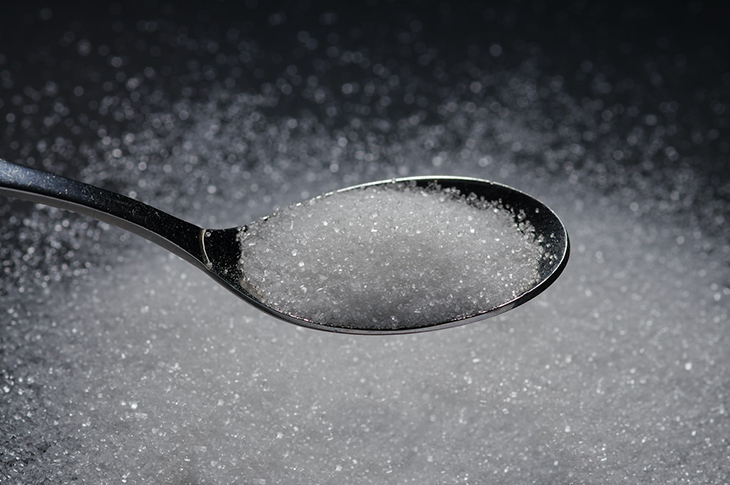Sugar Substitute Erythritol Could Increase Risk For Blood Clotting, Stroke And Other Types Of Heart Disease

A new study published in Nature Medicine claims that one of the most popular sugar substitutes, Erythritol, which happens to be found in Truvia and other types of no-sugar and keto-friendly foods, may be linked to an increased risk of heart attack and stroke.
What researchers found is that people with the highest levels of erythritol in their bloodstream were twice as likely to have a heart attack, stroke, or even death as compared to those with the lowest levels.
Senior author and chairman for the Department of Cardiovascular and metabolic sciences at the Lerner Research Institute and co-section head of preventive cardiology at Cleveland Clinic in Ohio, Stanley Hazen, MD, PhD, said, “These results were striking. That puts this on par with the same risk of the strongest of the cardiac risk factors, such as having diabetes. It’s even arguably stronger than the risk of high cholesterol or blood pressure.”
Meanwhile, associate director of preventive cardiology at the Stony Brook Heart Insitute in Stony Brook, New York, Mandeep Kainth, MD, shared, “This is an incredibly important study that provides significant evidence for how the use of artificial sweeteners, in particular the sugar substitute erythritol, may also increase the risk of cardiovascular disease such as heart attacks, stroke, and death.”
Notably, Dr. Kainth was not part of the research team.
Naturally High Levels of Erythritol May Increase Heart Disease Risk by Double
According to Dr. Hazen, they did not intend to focus on erythritol initially. Their aim was actually to examine various compounds present in the blood to determine whether any were predictive of future heart attacks or strokes. However, during the investigation, they observed that individuals with naturally high levels of erythritol, which the body produces as a metabolic byproduct, seemed to be at a heightened risk of such events.
Subsequently, the researchers shifted their attention to erythritol and analyzed its concentration in approximately 3,000 participants from the United States and Europe. They discovered that individuals with the highest erythritol levels, such as those in the top 25 percentile – those faced with twice the risk of heart attack, stroke, or death compared to those with the lowest levels of the compound.
In addition, the investigators evaluated the impact of erythritol on whole blood and isolated platelets, which are cell fragments that aggregate to prevent bleeding and assist in blood clot formation. Their findings revealed that erythritol facilitated platelet activation and clot formation. As blood clots can detach and travel to the heart, causing a heart attack, or to the brain, leading to a stroke, these results are significant.
Plasma Levels of Erythritol Can Increase by 1,000 Percent When Consumed in Processed Foods
To produce erythritol, corn undergoes fermentation. This compound can be sold on its own or used as an ingredient in sweeteners based on stevia or monk fruit. As a sugar substitute, it is approximately 70 percent as sweet as sugar. When consumed, erythritol is not well metabolized by the body. Rather, it enters the bloodstream and is mainly eliminated through urine.
After discovering the link between high levels of erythritol and blood clotting, Dr. Hazen and his team investigated how this substance accumulates in people who consume it through processed foods. They conducted a small pilot study in which healthy volunteers consumed one to two servings of erythritol in products like sweeteners ice cream or lemonade.
Dr. Hazen says, “The plasma levels of erythritol went about 1,000-fold higher, and then stayed above the levels that were observed, to enhance clotting risks in earlier experiments for days.”
Literature About Existing Concerns About Sugar Substitutes and Risk of Heart Disease Strengthened
Dr. Kainth shares that in 2018, the American Heart Association (AHA) recommended replacing sugar-sweetened beverages with low-calorie alternatives. This includes artificially sweetened beverages, for a short period, as a reasonable approach for reducing calorie intake and promoting weight loss.
However, Dr. Kainth adds that many individuals with pre-existing cardiac risk factors have been consuming products sweetened with erythritol under the impression that it could potentially mitigate these risks.
The findings of this study suggest that such products may actually increase the risk of cardiovascular disease. This research builds upon previous studies, such as the Women’s Health Initiative, which demonstrated that women who consumed an average of 24 ounces of artificially sweetened beverages per day faced a heightened risk of cardiovascular disease.
“The results of this study imply that those very products are putting people at an even higher risk of cardiovascular disease,” says Dr. Kainth.
“Given that the safety of these sugar substitutes has not been studied in detail, I believe the topic of artificial sweeteners and their impact on our health deserves more attention. This article brings up some very compelling questions that are important to address,” adds Kainth.
More Research Needed to Confirm Findings About Potential Risks of Erythritol
Despite the results of the study, the authors explain that further studies are needed to confirm the findings in the general population. The study had many limitations, including the observation studies demonstrating association and not causation.
While it’s true that these findings show an association between erythritol and heart disease, rather than conclusive evidence of the link, Dr. Kainth says that it’s definitely an important contribution to the growing body of literature on the topic.
He says, “To further strengthen these findings, we need more solid scientific evidence in the form of randomized controlled trials with larger population sizes, which can effectively assess the direct impact these products have on cardiovascular disease.”
Dr. Hazen also adds that additional trials are needed to study the long-term effects of artificial sweeteners in general, as well as erythritol specifically. These studies should also focus on whether there is an increase in heart attack and stroke, especially in those at a higher risk of cardiovascular disease.
FDA Doesn’t Require Long-Term Safety Data for Such Compounds As Erythritol
According to the U.S. Food and Drug Administration (FDA), erythritol is “Generally Recognized As Safe (GRAS),” which means that it doesn’t require long-term safety studies. Dr. Hazen shares that because erythritol is considered natural, it’s also generally regarded as safe, which is why it wasn’t studied much before it was used in a number of different processed foods.
“In all fairness, there’s no one who could have predicted this. We certainly didn’t; we just stumbled on it. But now that we know, we think some cautionary alarms need to go up, and we need to study it to evaluate its safety,” he says.
Measuring artificial sweeteners is hard, and labelling requirements are actually minimal. More often than not, they don’t list the individual compounds either.
Dr. Hazen says that when it comes to erythritol, it’s now clear that this is something that people need to be informed about so that they can make healthy choices. “From a public health standpoint, we should require labelling so that people can be informed and choose,” he says.
The Bottom Line: Is It Still Okay to Eat Foods With Erythritol?
Dr. Kainth explains, “My hesitation for recommending artificial sweeteners is the lack of scientific knowledge about their long-term effects.”
He adds that the study shows that rather than adding health benefits, the use of erythritol has potential for harm.
“With the information we have so far, this would further strengthen my support for choosing lifestyle changes and reducing sugar intake over using artificial sugar substitutes for an overall reduced risk of cardiovascular events,” he says.
Dr. Hazen agrees, saying, “I’m going to tell my patients that it’s better to use a modest amount of sugar or honey — in moderation — rather than reach for the thing that has an enormous amount of artificial sweetener in it that has not been well studied in terms of long-term health effects.”
Dr. Kainth also tells his patients to be kind to themselves when making changes to their diet, meaning they should make small and gradual changes rather than big and quick ones if they want to be successful.
“One way to do this is by cutting out sugary drinks such as carbonated beverages and replacing them with water or unsweetened tea. Reading food labels and paying attention to the sugar content of the foods we eat is also a good place to start,” he says.



